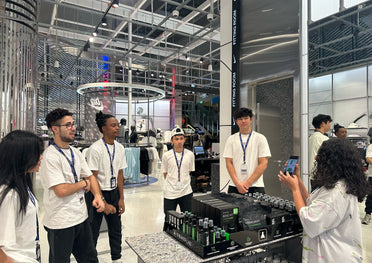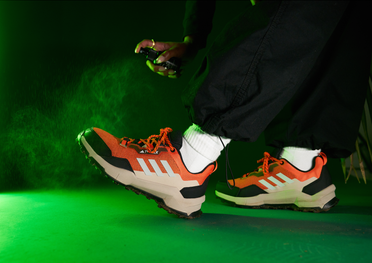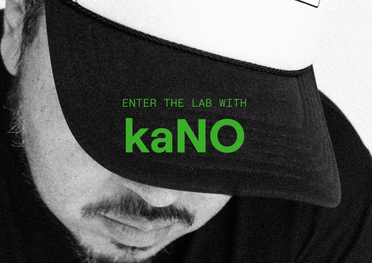Recyclable vs Compostable vs Biodegradable - What's The Difference?
[ ]
Article

Packaging – a tricky one, we need to sell products in something for numerous reasons from distribution to health and safety.
So, what’s the best between recyclable, biodegradable and compostable in terms of packaging our product?


At Sneaker LAB, we understand the oceans are the lungs of our earth (marine plants, such as phytoplankton, kelp and algal planktons produce as much as 70% of the earth’s oxygen)
We also know how toxic pollution to them is for us and the longevity of our home.


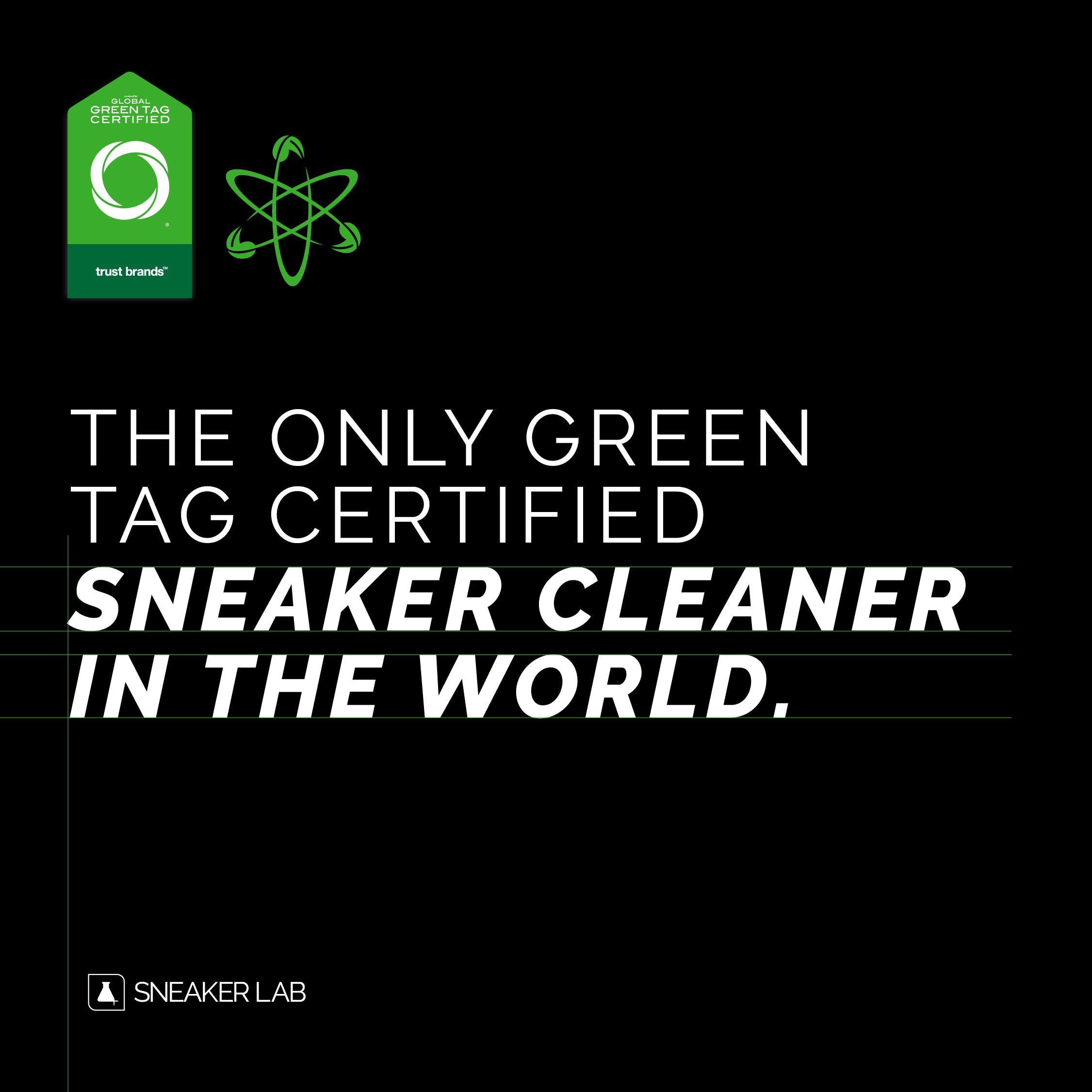
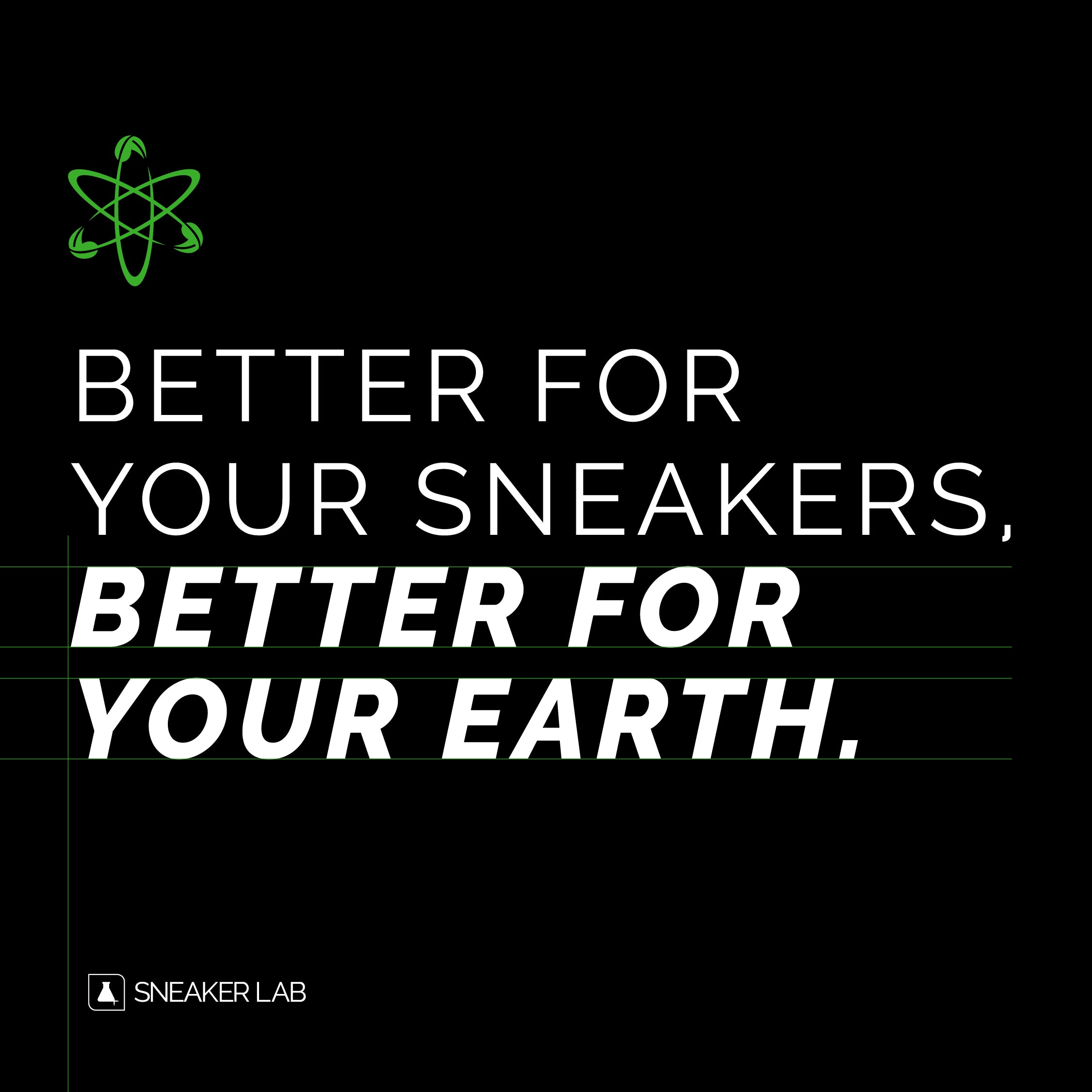

As a brand, it is important to us to make sure we were bringing the best green product to market in the least harmful way.
So, we did (and continue to do) a lot of research into the sustainability of packaging before we launch any product to ensure that while bringing you the best possible green solution to look after your kicks, we’re also doing the least possible harm to the planet. We’re constantly looking for new solutions to this problem while considering our carbon footprint and a myriad of other considerations that go into calculating the net score of the environmental impact of bringing a product to market. We’ll chat about these considerations as we go but let’s get into the differences between recyclable, biodegradable and compostable first.
Recyclable:
How recycling reduces pollution is by converting used materials into something new. This is how recycling helps the environment - by keeping products out of landfills and by taking products out of landfills to be remade into new products. This is how our packaging comes to life: our bottles are 100% recyclable (our Sneaker Wipe towelling is 100% recyclable too) and made up of up to 40% already recycled plastic. What does this mean? It means when Sneaker LAB products find their way into your hands, you’re helping keep almost half of the plastic in that bottle out of the landfills and the oceans. On top of that what’s great about it is that all of it will live another life as a new product and so on and so on.
The reason we only have up to 40% of already recycled plastic is due to a few contributing factors. Mostly due to quality - anything over 40% of recycled materials in a new bottle starts to destabilise the plastic and mess with its integrity making it potentially defective or subpar to the standard you’ve come to expect from us. Obviously no good for making sure you don’t have a leaky Sneaker Cleaner. Another reason is consistency, the recycled plastic must be sourced in the same pigment as our black bottles otherwise we’d have to dye it again and this isn’t all that great for the environment, some months there is plenty and other months it’s a bit of a struggle to find.
Biodegradable/Flushable:
When something is biodegradable, it means that it can break down naturally by microorganisms such as bacteria and fungi under certain conditions (temperature, humidity, etc.). However, this breaking-down process isn’t exactly all that and a bottle of Jack when it comes to plastic. Biodegradable product packaging specifically biodegradable plastic bags and bottles require extremely specific conditions to break down properly and can produce harmful greenhouse emissions when left to decompose in a landfill. Even natural products such as plastic made from banana skin can take up to 2 years to biodegrade when thrown away.
A notable craze in this space has been 'flushable' wipes. An enzyme-based cleaning solution held by a biodegradable textile that breaks down the same way that toilet paper does in the pipes. In theory, this sounds great, right? In practice, this doesn't really translate. Flushable wipes don't disintegrate or break apart the way toilet paper does when it encounters water. They tend to bind together better than paper towels. Although flushable wipes can technically be physically flushed – and they might make it through the curved part of your toilet, they are likely to get stuck in the drainpipe or build up over time and cause a clogged drain. Many cities globally have banned the use and sale of flushable wipes for this particular reason as they cause major issues in the pipes and at sewage and sanitation stations
Recyclable:
How recycling reduces pollution is by converting used materials into something new. This is how recycling helps the environment - by keeping products out of landfills and by taking products out of landfills to be remade into new products. This is how our packaging comes to life: our bottles are 100% recyclable (our Sneaker Wipe towelling is 100% recyclable too) and made up of up to 40% already recycled plastic. What does this mean? It means when Sneaker LAB products find their way into your hands, you’re helping keep almost half of the plastic in that bottle out of the landfills and the oceans. On top of that what’s great about it is that all of it will live another life as a new product and so on and so on.
The reason we only have up to 40% of already recycled plastic is due to a few contributing factors. Mostly due to quality - anything over 40% of recycled materials in a new bottle starts to destabilise the plastic and mess with its integrity making it potentially defective or subpar to the standard you’ve come to expect from us. Obviously no good for making sure you don’t have a leaky Sneaker Cleaner. Another reason is consistency, the recycled plastic must be sourced in the same pigment as our black bottles otherwise we’d have to dye it again and this isn’t all that great for the environment, some months there is plenty and other months it’s a bit of a struggle to find.
Biodegradable/Flushable:
When something is biodegradable, it means that it can break down naturally by microorganisms such as bacteria and fungi under certain conditions (temperature, humidity, etc.). However, this breaking-down process isn’t exactly all that and a bottle of Jack when it comes to plastic. Biodegradable product packaging specifically biodegradable plastic bags and bottles require extremely specific conditions to break down properly and can produce harmful greenhouse emissions when left to decompose in a landfill. Even natural products such as plastic made from banana skin can take up to 2 years to biodegrade when thrown away.
A notable craze in this space has been 'flushable' wipes. An enzyme-based cleaning solution held by a biodegradable textile that breaks down the same way that toilet paper does in the pipes. In theory, this sounds great, right? In practice, this doesn't really translate. Flushable wipes don't disintegrate or break apart the way toilet paper does when it encounters water. They tend to bind together better than paper towels. Although flushable wipes can technically be physically flushed – and they might make it through the curved part of your toilet, they are likely to get stuck in the drainpipe or build up over time and cause a clogged drain. Many cities globally have banned the use and sale of flushable wipes for this particular reason as they cause major issues in the pipes and at sewage and sanitation stations
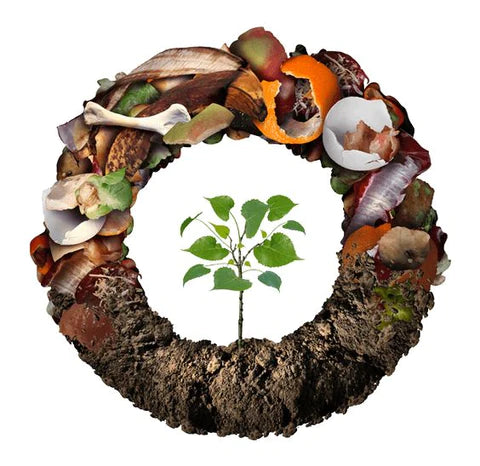
Compostable:
Compostable products are made from natural materials such as starch and decompose fully into “compost” without producing toxic residue as they break down. The downside of compostable packaging is that it has to find its way to a compost heap to be ecologically friendly. Having a compost heap is cool, but it’s not exactly a well-practiced method of disposing of waste. It is also limiting in the sense of what can go on to a compost heap but also in terms of space as the natural breakdown of waste on a compost heap is a slow process so composting everything is not a real option unless you have a large backyard space.
Some towns and cities do have composting facilities where you can drop off compostable waste, although this is very much a trend for moving towards the future and hopefully we'll see more sites in more cities with more people dropping off their waste.
You may ask why Sneaker LAB is not using compostable or biodegradable packaging? It’s a short and simple answer - the nature of our products naturally won’t allow for it. Our biofriendly biodegradable solutions speed up the breakdown of dirt and organic materials with naturally occurring proactive bacteria and enzymes. This means our product would eat away at its packaging which would just be a mess that no one wants to deal with.
Another trend in this space that is gaining a lot of traction and looks to be a promising solution in the future is Bioplastics:
Bioplastics:
These are made from marine or plant-based materials (such as corn and sugarcane) instead of petroleum and, therefore, are considered more environmentally friendly. However, we are keenly focused on being a South African, locally produced brand. It’s a key element of our brand heritage. The technology to produce the bottles to the standard and quality that has become synonymous with Sneaker LAB products is not available in South Africa yet. Outsourcing this process or importing the corn or sugar cane bottles from China means the transport to get them here counteracts the good they do with carbon emissions. A good old Catch 22. The last thing we want is to greenwash our consumers by selling a product that does more harm than good while still having the nerve of wearing a green label.
How does all this play out into our products specifically?
Let’s use our Sneaker Wipes as an example. Getting this product to be 100% recyclable has taken longer than expected. It’s been hurdle after hurdle and we have tried a multitude of different materials, processes, suppliers, etc and we have made progress! We’ve gone from our wipe packaging being 4 layers of plastic (a necessary evil to ensure we don’t compromise on the quality and effectiveness of the product) to just two layers of plastic. This, unfortunately, still means that the actual packaging our wipes come in is not recyclable yet as you’d have to physically separate these two layers and because they’re heat pressed together - it’s impossible. The only reason we haven’t been able to move faster and further towards having this packaging be 100% recyclable is that the technology simply isn’t there yet.
We are onto some exciting stuff to achieve our goal and we’re aiming for mid-2022 to have this issue eco-wrapped up. In the meantime, we have reduced the plastic in our Sneaker Wipes packaging by 50%, and the actual wipe towel material is entirely 100% recyclable and the solution itself is completely biodegradable and Green Tag certified.
While it may get a little messy from time to time and we’re not always completely satisfied with where we are in our journey. (Is anybody ever? How else would we keep moving forward towards our goals?) We are committed to being the number one Sneaker Care brand in the world for the world.
Some towns and cities do have composting facilities where you can drop off compostable waste, although this is very much a trend for moving towards the future and hopefully we'll see more sites in more cities with more people dropping off their waste.
You may ask why Sneaker LAB is not using compostable or biodegradable packaging? It’s a short and simple answer - the nature of our products naturally won’t allow for it. Our biofriendly biodegradable solutions speed up the breakdown of dirt and organic materials with naturally occurring proactive bacteria and enzymes. This means our product would eat away at its packaging which would just be a mess that no one wants to deal with.
Another trend in this space that is gaining a lot of traction and looks to be a promising solution in the future is Bioplastics:
Bioplastics:
These are made from marine or plant-based materials (such as corn and sugarcane) instead of petroleum and, therefore, are considered more environmentally friendly. However, we are keenly focused on being a South African, locally produced brand. It’s a key element of our brand heritage. The technology to produce the bottles to the standard and quality that has become synonymous with Sneaker LAB products is not available in South Africa yet. Outsourcing this process or importing the corn or sugar cane bottles from China means the transport to get them here counteracts the good they do with carbon emissions. A good old Catch 22. The last thing we want is to greenwash our consumers by selling a product that does more harm than good while still having the nerve of wearing a green label.
How does all this play out into our products specifically?
Let’s use our Sneaker Wipes as an example. Getting this product to be 100% recyclable has taken longer than expected. It’s been hurdle after hurdle and we have tried a multitude of different materials, processes, suppliers, etc and we have made progress! We’ve gone from our wipe packaging being 4 layers of plastic (a necessary evil to ensure we don’t compromise on the quality and effectiveness of the product) to just two layers of plastic. This, unfortunately, still means that the actual packaging our wipes come in is not recyclable yet as you’d have to physically separate these two layers and because they’re heat pressed together - it’s impossible. The only reason we haven’t been able to move faster and further towards having this packaging be 100% recyclable is that the technology simply isn’t there yet.
We are onto some exciting stuff to achieve our goal and we’re aiming for mid-2022 to have this issue eco-wrapped up. In the meantime, we have reduced the plastic in our Sneaker Wipes packaging by 50%, and the actual wipe towel material is entirely 100% recyclable and the solution itself is completely biodegradable and Green Tag certified.
While it may get a little messy from time to time and we’re not always completely satisfied with where we are in our journey. (Is anybody ever? How else would we keep moving forward towards our goals?) We are committed to being the number one Sneaker Care brand in the world for the world.


[ Follow ]

